
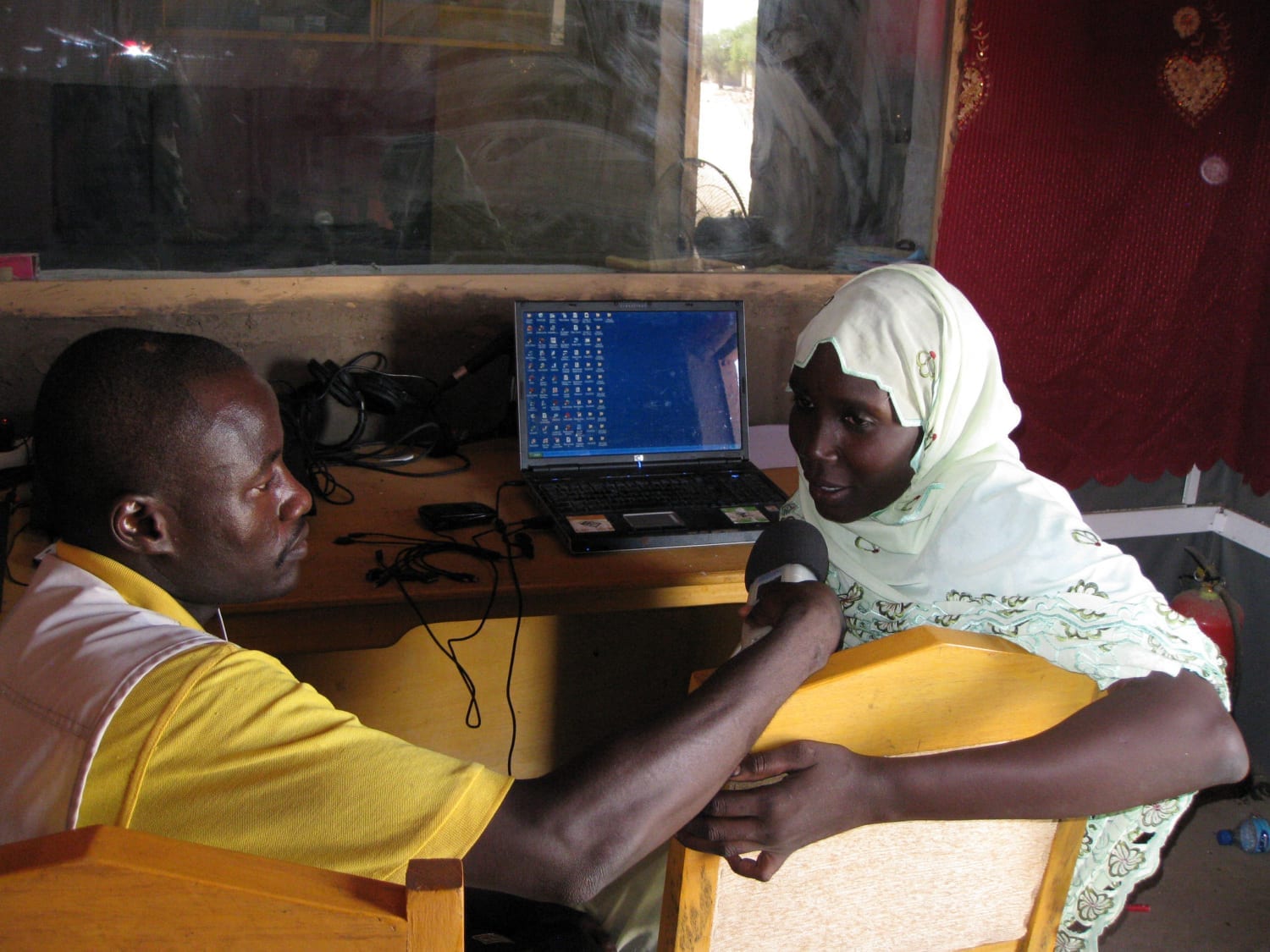
Peace Through Development II (PDevII)
The PDev program, from start to finish, connected people and empowered them to build their own network for peace.
A Project of —
Burkina Faso, Chad, Niger, Sahel

Thanks to EAI, our communities have reunited, and we are more tolerant with each other – even the villagers have been affected; also the quality of our radio station has noticeably improved, and so has listenership.”
– Habibou Yantakashe, Fillingué, Niger
Building on the success of PDev I, EAI was chosen as a key consortium partner in USAID’s, Peace through Development program (PDev II) between 2011 and 2016 in Burkina Faso, Chad, and Niger. EAI scaled and built on the original communications for social change programming that was wildly successful in PDev I and expanded our reach to include Chad. EAI employed its full gamut of tools to ensure PDev II was a success integrating sustainability planning, community engagement, radio circles; journalist, community reporter, and researcher training, as well as LDAG facilitator training and finally a significant media capacity, radio station management, and production training.
Like PDev 1, EAI produced three types of radio programs in each country, which included youth programming, good governance programming, and CVE programming. To ensure the communities of interest could access the programming, EAI translated the material into nine local and regional languages.
These radio programs had an estimated reach and listenership of over 17 million people across all three countries.
The Interactive Feedback Loop: EAI incorporated mobile technologies into the project. The teams worked with mobile platforms such as Frontline SMS, an SMS campaign management system developed specifically for use by non‐profits to integrate SMS campaigns with the radio programs and project activities. Using this open source software we were able to incorporate a breakthrough interactivity allowing audiences to send questions, comments or requests via text message (SMS). Additionally, EAI started integrated interactive voice response (IVR) system, which enabled anonymous feedback, surveys, and data collection as well as critical feedback about the programming we used to pivot and adjust to better serve our audience and meet our goal.
Radio Mapping and FM Station Support: To determine accurate figures of the broadcast reach of the partner radio stations, EAI visited over 60 stations in the PDEVII countries, compiling technical information including the heights of the antennas, capacities of the transmitters, and GPS coordinates of the stations. With this data, our teams were able to calculate the geographical coverage and estimated audience reach for each station. For the first time, this gave the local radio stations a sense of their actual reach and this knowledge allowed them to focus their limited resources in more targeted ways.
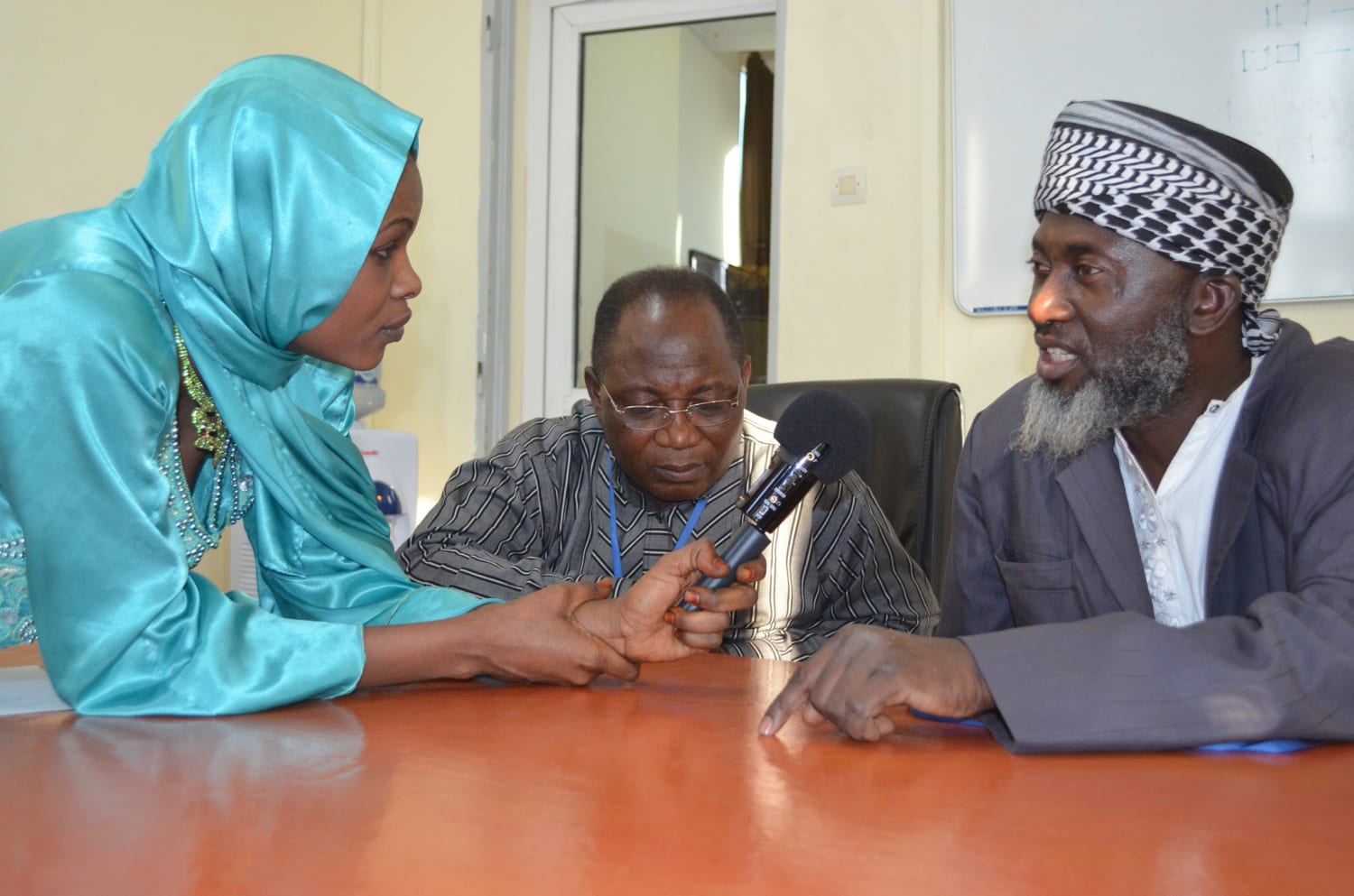
“In my opinion, raising awareness [of VE] among youth is a ‘no-brainer’ and very beneficial, because it allows youth to be engaged in politics and defend their rights."
Media Capacity Build and Training:
Beyond providing high-quality, local language CVE content to listeners across the region, PDev II’s SO2 also sought to strengthen local media, to create sustainable sources of information and platforms for open debate and exchange. By the end of the project, PDev II was working with 14 partner radio stations in Burkina Faso, 19 in Chad, and 40 in Niger. In the first two, the training with radio stations consisted mostly of basic technical skills and content development for reporting and radio production as well as modernizing radio station equipment and bolstering infrastructure to produce high-quality content.
In the third and fourth year, the training becomes more advanced including specialized topics such as the creation of specific genres of programming, e.g., live call-ins, drama, SMS feedback system installation — additionally, sustainability and management training targeting stations directors and management committee members were implemented.
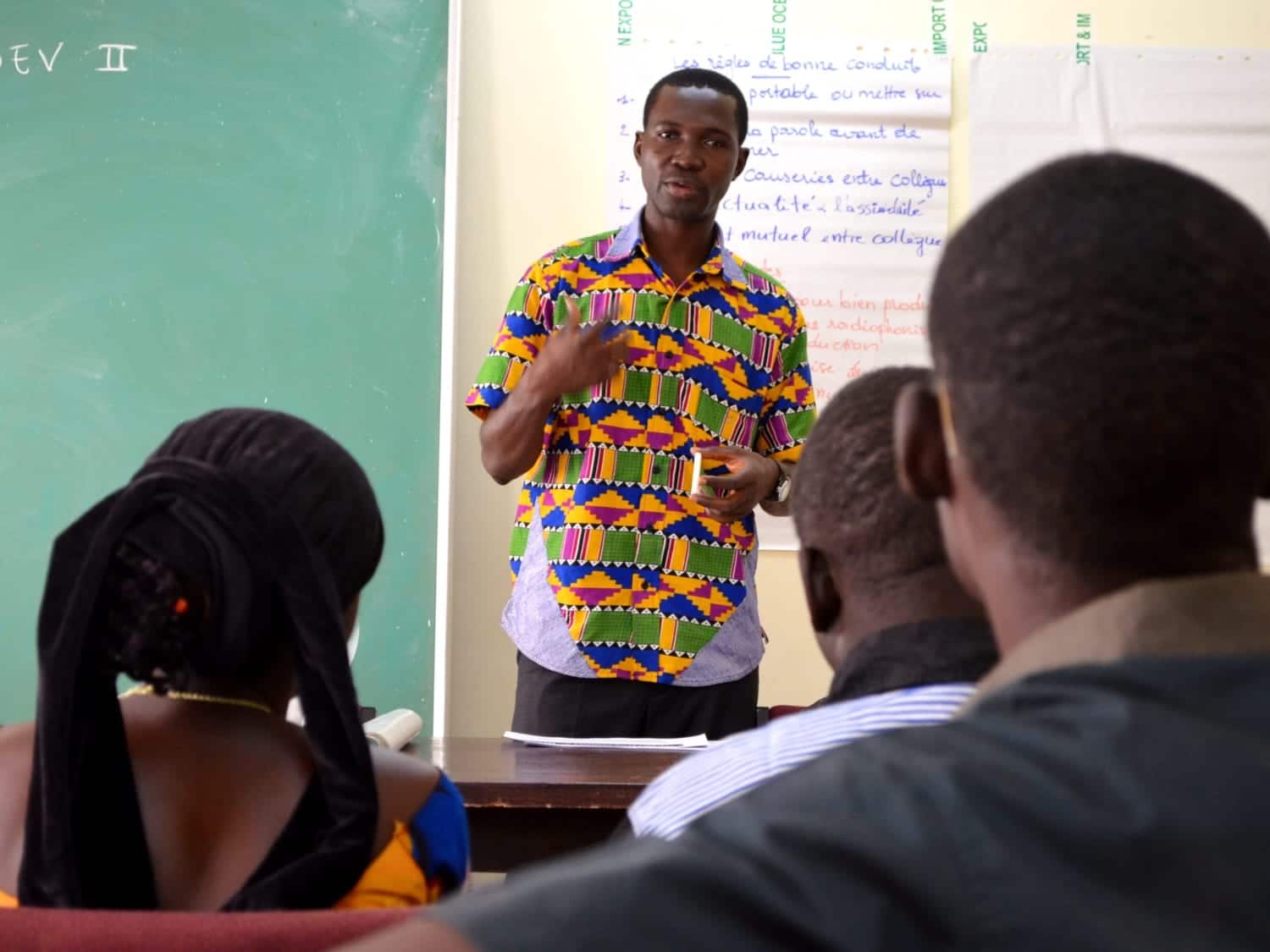
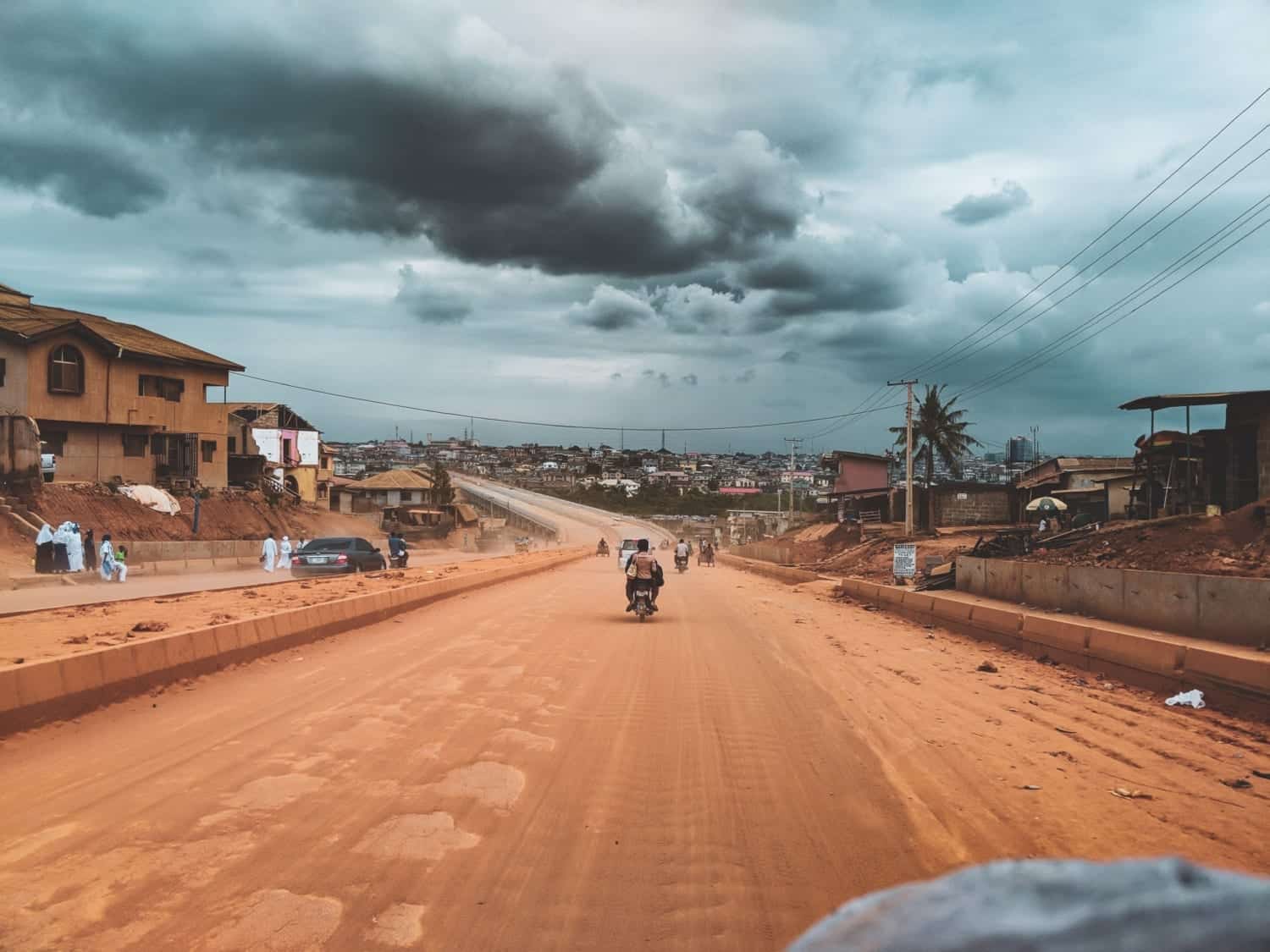
Setting Communities Up for Sustainability: EAI’s community-centered methodology is centered on building the capacity of local teams with the goal of instigating ongoing production and action following the end of the project. To do this with PDev II, we provided income-generating grants for select high-performing stations for stations directions to put their sustainability strategies to the test. We implemented radio mentoring programs where quality stations hosted intern producers and technicians from low-performing stations for several week fellowships, followed by a visit and on-site training at the mentee’s station.
Finally, Building on the professional networks of journalists begun through earlier mentorships, in the final year of the project, training was replaced by meetings of Radio Circles. Uniting staff from three or four radios within a specific geographic area, Circles acted as sustainable and largely independent regional networks of journalists. During Circle meetings, radio staff was invited to rely on each other for expertise, mentorship, and best practices, and to co-produce and exchange local language radio content on regionally-relevant themes for broadcast across multiple stations. At the conclusion of the project, stations were provided with a thorough handbook in (French, Hausa or Arabic as appropriate) outlining the main teachings of EA’s approach to radio production, to serve as a point of reference beyond the end of the project.
Throughout the project:
- 40 radio production training took place reaching nearly 600 radio staff, including 17% of women
- 15 Community Reporter, Journalist, and Survey Enumeration Trainings took place reaching 247 individuals, 25% women
- 6 LDG Facilitator training took place training 84 individuals, 24% of women
Finally, implemented immediately following PDev II, which involved installing two solar panels and constructing two radio towers in Chad to ensure longevity. Learn about that project here.
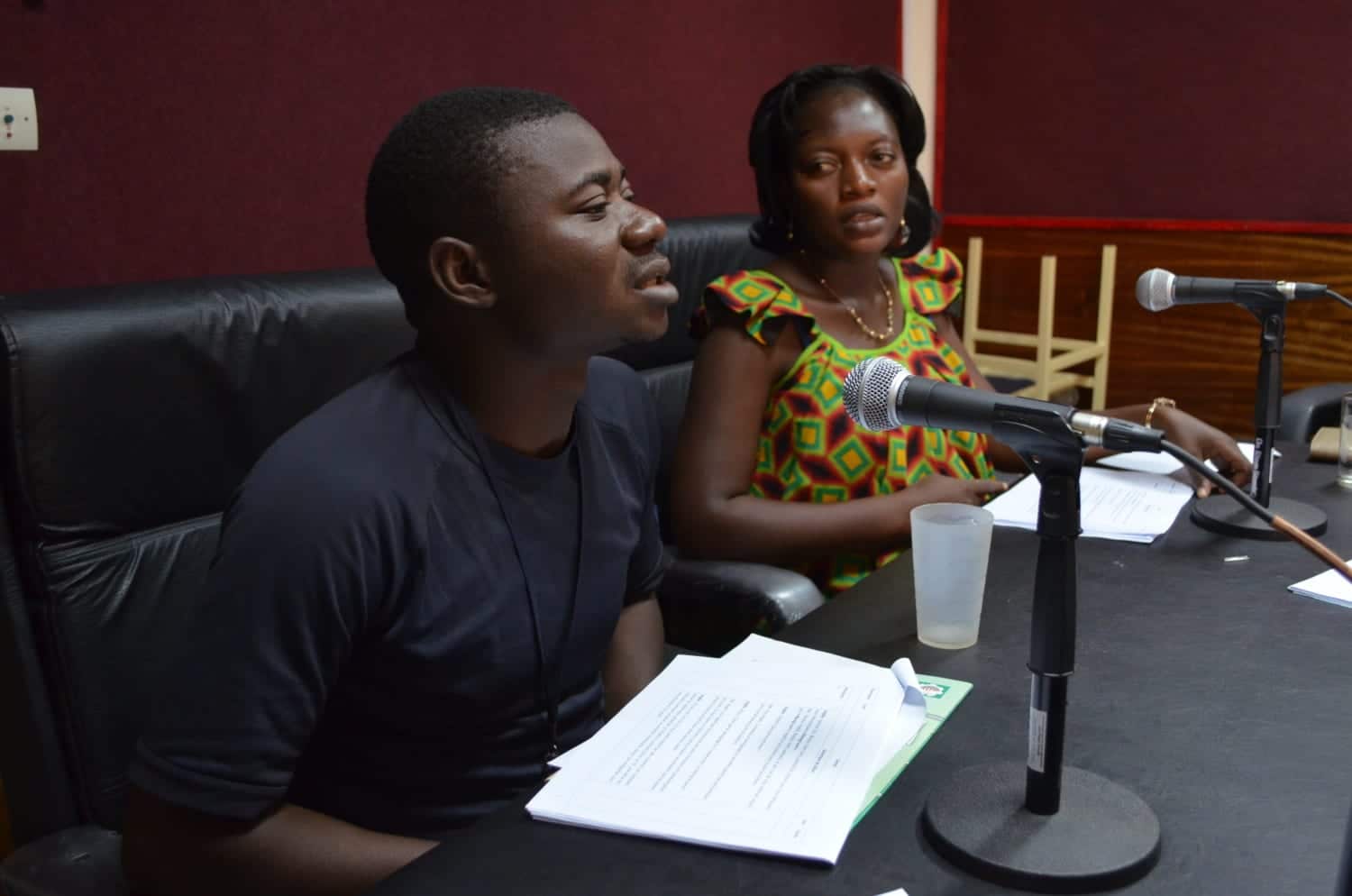
Even when there are people who are in conflict, listening to your episodes helps us be able to reconcile these people who are not getting along.” – IVR message from Matine Shaho, Tessaoua, Niger
The volatile security situation within the PDevII countries put PDevII media to the test at several points during the project lifespan, prompting media teams act rapidly to respond to evolving political contexts and maximize CVE impact.
During Burkina Faso’s 2014 coup d’etat, myriad listeners cited PDevII radio as having contributed to peace keeping efforts in their communities. When faced with the riots and violence against the government that occurred during the coup, Ouahigouya gardener Ibrahim Touré gathered a group of 15 faithful PDevII radio listeners to restore peace to their community and protect the family of a prominent local politician.
“When the angry mob arrived at the politician’s house we intercepted them and start calling for forgiveness. We mediated and plead with them, and in the end some of them were disgusted by their own behavior and threw themselves to the ground before us; others thanked us and left without touching or breaking anything. We were relieved and happy to be of use, but it must be said honestly that it was thanks to PDevII…we recognize that this program has educated us without us even noticing. It cultivated in us the spirit of forgiveness and tolerance.”
Radio By and For Communities
1,104 Episodes
Of youth and good governance original radio programs in seven local and two regional langauges
97% Listeners
Reported they thought the CVE radio programs were trustworthy and appealing
72 Million
Estimated reach of radio listeners, with a regularly weekly audience of 3.5 million